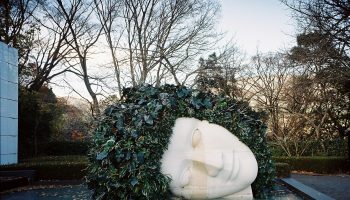I am constantly asked about my life in Saudi Arabia. There is no way to fully express the bitterness I have for some aspects of this society or the profound affinity I have for the land that is my birthplace but not my home. In this piece, I hope to answer this question as sincerely as I can; an intimate account of a young woman of color growing up in the Kingdom, but before I begin…
AHLAN WA SAHLAN
Welcome to Saudi Arabia, the largest nation in the Middle Eastern region; home to over 22 million people and a host to many expatriate and contract workers.
Among them were my parents – a Sri Lankan business owner and a Filipino registered nurse – who have lived in the Kingdom for over twenty-five years, most of which were spent in Riyadh.
It is where my siblings and I were born, where we went to school, and where I graduated from High School. I do not hold a Saudi passport though I was born there; I am effectively Sri Lankan and Filipino by descent. This is the case for many children born to non-Saudi parents in KSA. It is both a blessing and a headache, particularly if you choose to be a long-term resident.
When I was a schoolgirl, opportunities to mix and mingle with Saudis my age were minimal. Saudis and non-Saudis attend separate schools: the local schools, the community or “embassy” schools, and what is known as an international school. This type of school is not always subject to the rules imposed by the Ministry of Education. Local schools and embassy schools generally are. A non-Saudi student who wishes to study in a Saudi school requires special permission from the government and vice versa. The royal family are not immune to this either. It’s standard procedure.
Schooling in Saudi Arabia was strange. I attended a Filipino school from Kindergarten to third grade. Almost everyone was Filipino, Roman Catholic, spoke Tagalog and even preserved a Filipino accent. There was little interest in learning more about the land they occupied and their education revolved strongly around their Filipino identity and little else. Ignorance and stereotypes of other people were readily accepted and unchallenged. Being partly Sri Lankan and Muslim was difficult in such a school. I distinctively remember being disallowed from learning Filipino culture and civics because of my background. Ignorance was so rife, my geography teacher used to say Sri Lanka and Bangladesh were the same country. A fellow student thought Sri Lanka was a place in Saudi Arabia. As the token Muslim student, I was expected to speak on behalf of my people. I was seven years old at the time.
I later went on to study at international schools, one under the wing of the Ministry and the other was granted more leniencies – an example of the diverse spectrum of how schools in the Kingdom were managed and regulated. Such schools could replicate education systems overseas. The school I graduated from followed a British education system, offering IGCSE and A levels from various boards including AQA, Edexcel and Cambridge. Indian schools offered CBSE. Some international schools offered students a choice between IB and A levels.
Riyadh – The desert city
In spite of its conservative demeanour, remember Riyadh is a desert city marked by mirages: many Western expatriates and employees of large corporations reside in compounds. Barred and patrolled by security guards, compounds provide a means of escape, a break from the many restrictions of the Kingdom. Within their parameters, alcohol is permissibly consumed; genders mix freely; abayas are not mandatory and in some compounds, it is prohibited. There are cinemas, bowling alleys, restaurants and other entertainment spaces. Some compounds go as far as replicating life outside the Kingdom by services such as having newspapers delivered on your doorstep. Within the parameters, women can even drive. One such compound was situated right next to my high school. Although, I never lived in a compound, many of my friends did.
By the time I neared the end of high school, many of my friends had their minds set to studying in the United States, the United Kingdom and several neighboring Middle Eastern countries. My twin and I were probably the first graduates of the British International School, Riyadh to fly off to Australia – and I’m glad that I did.
Image Credits: Andrew A Shenouda


